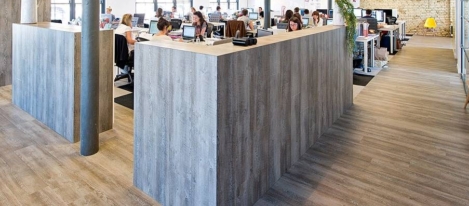October 22, 2015
Shrinking Asian workplace density could impair business performance 0
 Workplace static density, i.e. the space per sq. ft. per workstation, has halved in many Asian markets over the last decade and in many parts of Asia, this has already reached a point where further reductions will impact productivity, performance and retention. In Hong Kong, India and China, workplace space has shrunk from 100 sq. ft. per desk to 50-60 sq. ft. per desk. This figure is nearly half that of Europe and the US, where density norms are around 150-200 sq. ft. per desk. Elsewhere, in Australia and New Zealand, standards remain more generous at around 90-150 sq. ft. per desk. CBRE’s recent report, Space Utilization: The Next Frontier, looks at how organizations across the region are now under pressure to drive down costs by increasing their workplace ‘static density’ and suggests ways in which companies can use workplace density and utilization data to drive efficiency and business performance.
Workplace static density, i.e. the space per sq. ft. per workstation, has halved in many Asian markets over the last decade and in many parts of Asia, this has already reached a point where further reductions will impact productivity, performance and retention. In Hong Kong, India and China, workplace space has shrunk from 100 sq. ft. per desk to 50-60 sq. ft. per desk. This figure is nearly half that of Europe and the US, where density norms are around 150-200 sq. ft. per desk. Elsewhere, in Australia and New Zealand, standards remain more generous at around 90-150 sq. ft. per desk. CBRE’s recent report, Space Utilization: The Next Frontier, looks at how organizations across the region are now under pressure to drive down costs by increasing their workplace ‘static density’ and suggests ways in which companies can use workplace density and utilization data to drive efficiency and business performance.









 Companies are rethinking the tools they use to keep employees engaged and loyal – especially at a time when flexibility and choice are increasingly important to an workforce that craves mobility and choice. A newly released survey from
Companies are rethinking the tools they use to keep employees engaged and loyal – especially at a time when flexibility and choice are increasingly important to an workforce that craves mobility and choice. A newly released survey from 






















August 2, 2015
Female bosses enhance workforce engagement and motivation
by Gill Buchanan • Comment, Flexible working, Wellbeing, Workplace
(more…)